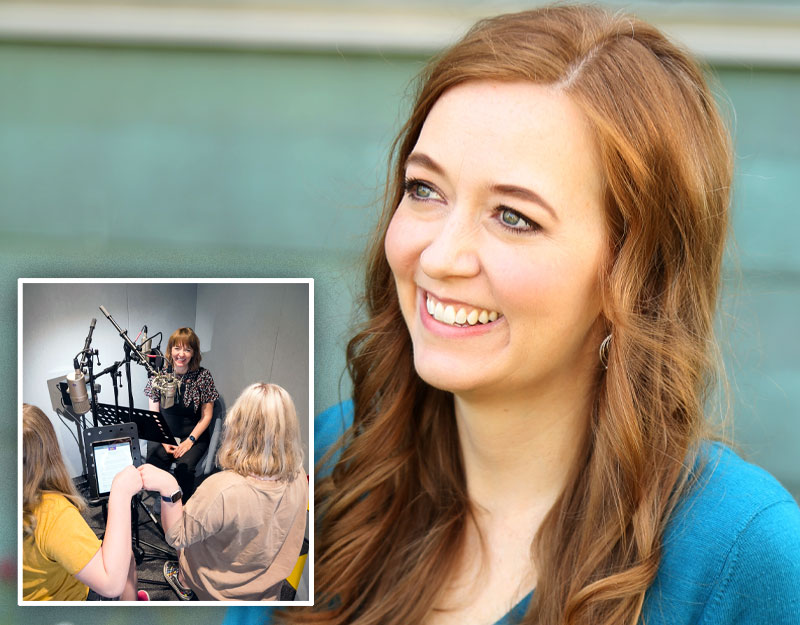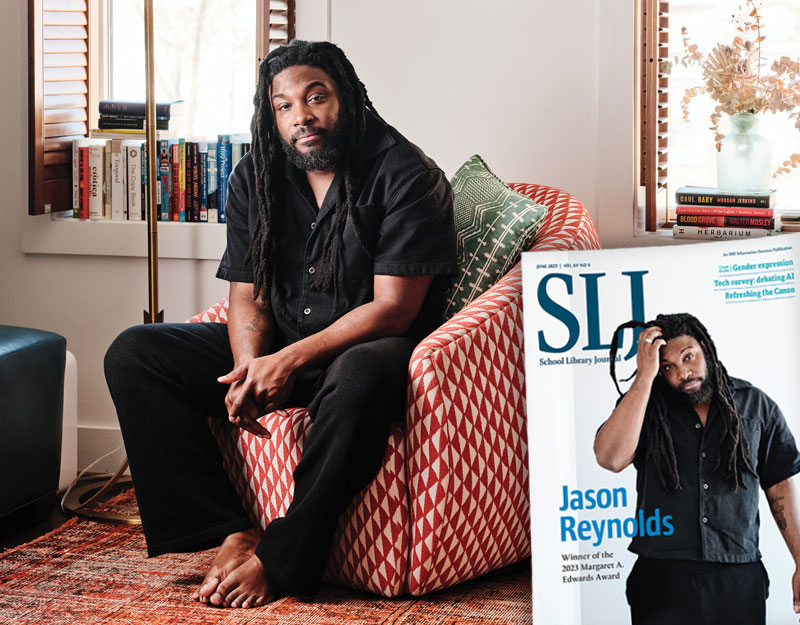Review of the Day: Pie in the Sky by Remy Lai
 Pie in the Sky
Pie in the Sky
By Remy Lai
Henry Holt and Company (an imprint of Macmillan)
$21.99
ISBN: 978-1-250-31409-3
Ages 9-12
On shelves May 14th
This year, I stumbled into an unexpected pattern. Though I didn’t quite mean to, I ended up reading a whole slew of middle grade novels that were funny. I’m not avoiding the serious stuff, but through a series of unlikely events I found myself diving deep into funny book after funny book. Now a hilarious novel for children can go one of two ways. It can be simply amusing for the sake of amusement, making no attempt at being meaningful in any way. I have a grudging respect for these books, since I think it’s a lot harder to get them published in today’s market. The publishing world of the early 21st century has little tolerance for meaningless whimsy. Far more common, then, are the books that look funny and then, when you least expect it, hit you in the gut with – BAM! – Pathos!! It’s not a bad way to go about things, if the writing can pull off the switch. Pin in the Sky is by all accounts a debut, but it sure doesn’t feel that way. Gracefully switching between text and comics, comics and text, author Remy Lai feeds breadcrumbs (or, more accurately, cake crumbs) of humor and sequential art to kids, luring them towards a storyline with a deeper, darker meaning. For the kid that avoids serious stories like the plague, Pie in the Sky is the perfect gateway drug. There’s a whole lotta sad going on here, and a whole lotta humor as well. The end result is a balancing act that will keep you absorbed and reading until the end.
Some kids love sports and some love reading and others love dance or games. Jingwen loves cake. Sort of makes sense. His grandparents run a cake shop and his dad was always making cakes before he died. In fact, his dad was even going to start his own fancy cake shop called Pie in the Sky where he and Jingwen would make things like chocolate raspberry tortes, Neapolitan mousse cake, apple mille-feuille, and more. Now Jingwen has moved to Australia with his mom and annoying little brother Yanghao. He doesn’t speak the language. He doesn’t have any friends. And there’s something about his dad’s death that’s weighing him down, like having heavy seashells in your pockets. The only thing Jingwen can think to do is to try and bake every single one of the cakes his father was going to make for Pie in the Sky. The trouble? His mom has forbidden him from using the stove while she’s away, and she’s away all the time! Now, faced with being moved back a grade if he doesn’t improve in school, Jingwen dedicates himself heart and soul to cake baking. But when your problems have nothing to do with pastries, how do you finally come to realize what’s really important?
ADVERTISEMENT
ADVERTISEMENT
The thing about Pie in the Sky is that it’s technically playing fair right from the very start. Though the reveal that the dad is dead doesn’t happen until you’re already a couple chapters in (and by then you’re hooked) it’s early enough that it doesn’t feel like the author has pulled a weird tonal switcheroo on you. But let’s examine the book’s first chapter. You can tell a lot about a book by its first chapter. If, for example, Lai set this book up as some happy-go-lucky spree, you might feel betrayed later on when things get bleak. But from the get-go we understand instantly that (1) Jingwen and his immediate family have left their home to move to Australia (2) Not everyone from home came along (3) Yanghao is annoying and hilarious (4) As indicated by the thoroughly smashed cake, this story is going to be an interesting combination of awkward, sad, and funny all at once. All this in one chapter where the text is routinely punctuated with comic-style art.

Recently I’ve become more and more interested in middle grade novels where bullying isn’t the stereotypical jock/mean girl/clique set of tropes that kids, by now, have internalized. Put simply, that stuff is boring. Saturday morning cartoon boring. If you’re going to have a character feel bullied in some way, let it come from nice kids. Because being hurt by a mean kid isn’t fun, but you can write that person off as mean. Getting hurt by a nice kid? A million times worse. In Pie in the Sky no one ever walks up to Jingwen to say something mean to him. But more than once he overhears a classmate and is able to understand just enough to know (or think) that they’re talking about him. Even then, what they’re saying is that he’s “slow”, particularly when it comes to speaking English. Not the worst insult, but it just kills him. You get this amazing moment when Jingwen (who’s been picturing himself as an alien ever since he arrived in Australia) looking in the bathroom mirror to find that because of their words he sees himself as more monstrous and grotesque rather than less (a trope that sort of peters out at the end, but oh well). Later, when he runs into those kids, one will just run away rather than deal with what he said. There’s a lot of truth to that, and it sure as heck beats watching someone get stuffed in a locker.
As I read Pie in the Sky I noticed that Lai uses a specific technique in the book that feels familiar. The more I read, the more I felt that she was referencing Shaun Tan’s The Arrival on some level. It makes sense. Both Lai and Tan live in Australia. Both have firsthand knowledge of the immigrant experience, whether it’s their own or their parents. So when Lai depicts the English language as an alien series of indecipherable pictograms, I was reminded of how Tan did something similar in his books by cutting up English letters and rearranging them into unfamiliar (but beautiful) patterns. Another book, Here I Am by Patti Kim features art by Sonia Sánchez that is “wordless” by also making the English words impossible to read on the page. And, like Pie in the Sky, it’s about a child coming to a new country and new classroom, far from everything that’s ever felt familiar. Three books on a similar theme, one a graphic novel, one a picture book, and one an illustrated novel. Together they equal necessary purchases for your home or public library.
So let’s talk a bit about Lai’s comics. First off, can I tell you how freakin’ thrilled I was when I found out Lai was a woman? I love two things in this world (possibly more, but for the purposes of this sentence we’re sticking with two): Funny female writers and female comic artists. To get both in one book blows my furry little mind. I mean, I was pretty much in Lai’s pocket from the first page onward. Wanna know how she hooked me? It was Yanghao. I think writers of middle grade everywhere could learn a lot from the creation of Yanghao. Loads and loads of novels are written every year on deeply sad, depressing topics. I mean, this book is dealing with grief and guilt and culture shock and immigration and more. It could bog down even the most valiant reader if not for Yanghao, that little jolt of joy. Is he annoying? Let’s just say I have never encounter a book for kids that used the word “Booger” as often as this one does (and I include William Joyce’s Billy’s Booger in that statement). But Yanghao is also honestly funny. Literally the first thing he does in the book is say on the airplane to his brother, holding up a barf bag with evident glee, “Jingwen! Jingwen! I’m puking in this bag!” I mean, right there, I was his.

Funny then? Check. But then there’s just the fact that Lai is a really good artist. You notice this in a lot of little ways. Consider the moment when Yanghao, right at the beginning of the book, drops the rainbow cake from home (which, by the way, a clever book group would point out ties in perfectly with the baking of the rainbow cake at the end of the book). First you have on the left-hand page Yanghao’s enormous hands reaching towards you as he says, “Letmeholdthecake!” Then, on the opposite page, Lai cuts the image into two parts. A panel at the top, laid over the image beneath, shows the brothers looking down. Yanghao’s left hand is open in this funny little position. You know that moment when you’ve caused an accident and you just pause there, as if by holding still you can undo what you did? The smashed cake diagram that makes up the bottom-half of the page is, in and of itself, a work of beauty. Arrows indicate each color with wonderfully precise yet descriptive language. “Cat-Tongue Pink.” “Fire Orange.” “Snowy Cream.” It’s this mocking combination of the beauty of the internal layers, contrasted with the smashy smashyness of it all on the ground. And that’s just two pages! Somehow Lai was able to put that level of commitment and detail into the whole dang book! All 380 pages of it. Do you see now why I was so floored (pardon the pun)?
The inevitable question I ask myself in a review of this type is whether or not there was anything in this book I would have liked to be a bit different. I guess. For example, I understand why Lai felt it necessary to never say what country Jingwen and Yanghao are leaving. If you fail to mention their point of origin then their story becomes a little more universal, right? I dunno, though. There’s a lot to be gained in specificity. We know that in interviews Ms. Lai has said that she borrowed elements of this tale from her own childhood, like the fact that she learned English when she was nine. We also know that she was born in Indonesia, grew up in Singapore, and now lives in Brisbane, Australia. As an adult I wanted the details of where exactly Jingwen and Yanghao were from, but the more I thought about it the more I took stock. Think of it from a kid’s point of view. To what degree are they going to care about where the brothers are coming from? Does it really matter in the course of the story? I remain undecided with this decision. I think I’ll just hand the book to kids and see if they ever mention it.
Not every sad book for kids has to be leavened with humor and wit. Not every book needs to be filled with an array of luscious, yummy cakes. And not every illustrated novel has to be this good. But it helps. Consider this the easiest book to booktalk in the world. You play up the cakes, show the kids the cartoons, and voila! They’re instantly reading a story about the complications that come with family love and communication, letting go, not just of the people we love, but the guilt we’ve tied to their memories, and how much bravery it takes to admit when we’re wrong. That’s a whole lot of serious stuff for such a blithely funny work of fiction. If this is what Remy Lai’s got going on straight out of the gate, I can’t wait to see what she comes up with next. Even if it doesn’t involve cake.
On shelves May 14th.
Source: Galley sent from publisher for review.
Like This? Then Try:
- The Arrival by Shaun Tan
- Here I Am by Patti Kim, ill. Sonia Sánchez
Interviews:
- Remy appeared at Watch. Connect. Read. and conducted an interview almost entirely with original comics starring Jingwen and Yanghao.
- Apparently Remy Lai is a “Pitch Wars Success Story”. To learn what precisely that means you can read this interview with her at Pitch Wars.
Book Jacket Nattering:
Here’s the British cover for the same book. They seem keener on the option of including a tagline than we do here in the States.
Misc:
- Remy created a coloring page for recent Newbery Honor winner The Night Diary.
- Finally, you can read Remy’s guest post on Kidlierati about Books as Mirrors.
Filed under: Best Books, Best Books of 2019, Reviews, Reviews 2019
About Betsy Bird
Betsy Bird is currently the Collection Development Manager of the Evanston Public Library system and a former Materials Specialist for New York Public Library. She has served on Newbery, written for Horn Book, and has done other lovely little things that she'd love to tell you about but that she's sure you'd find more interesting to hear of in person. Her opinions are her own and do not reflect those of EPL, SLJ, or any of the other acronyms you might be able to name. Follow her on Twitter: @fuseeight.
ADVERTISEMENT
ADVERTISEMENT
SLJ Blog Network
2024 Books from Coretta Scott King Winners
Monkey King and the World of Myths: The Monster and the Maze | Review
Parsing Religion in Public Schools
The Tortured Poets Department Poetry Party Part 2: DIY Frames for Your Instant Photos
ADVERTISEMENT








